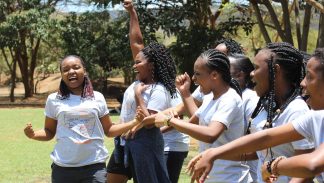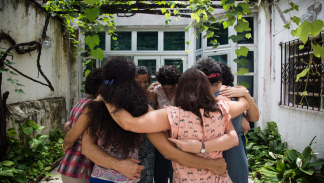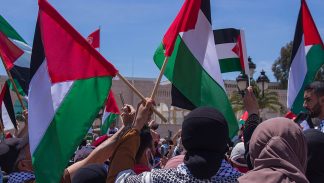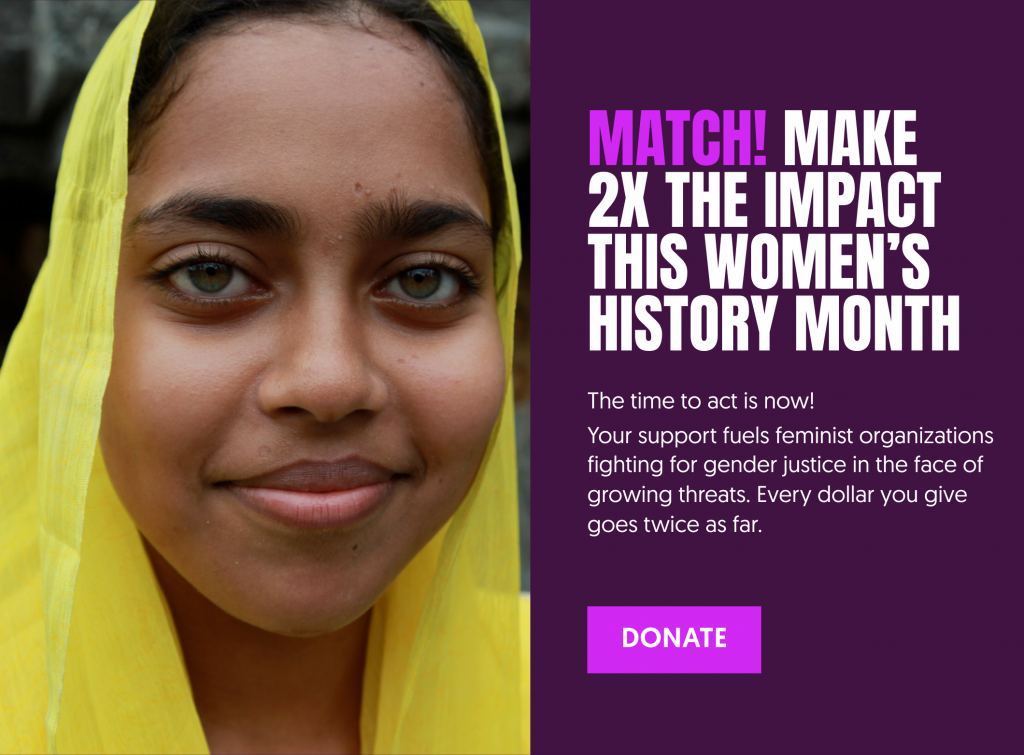Alia Almirchaoui
When Alia was 13 years old, her parents died, leaving her in charge of her two brothers. With no way to provide for her family or pay rent, her neighbor pressured her into marrying him so that she and her brothers could continue to live in their home. Her husband soon became abusive. When Alia sought help from three other neighbors, her husband arranged for the neighbors to be “kidnapped,” then accused Alia of being responsible. She was sent to prison at the age of 14, where she was held for five years. There she met women from the Organization of Women’s Freedom in Iraq (OWFI), whose outreach inside the prison gave her comfort and hope.
When Alia was released from prison, OWFI offered to house Alia in one of their safe houses. From the group, she also learned about her rights, and they encouraged her to become an activist and women human rights defender in her own right. “[OWFI] let me change my life and move forward from my situation. I did not know that I had the right to my dignity,” says Alia. “I learned from them that humanity exists and that I’m able to help other women. My life started to change after this.”
Alia quickly became a strong defender of human rights for women and other marginalized groups in Iraq. With OWFI’s support, Alia opened and began to run a new safe house for women who have survived trafficking, abusive homes, or violence. Alia says she will turn no woman in need away. “I don’t exclude anyone. Women of color are always not welcomed [in other places]. They don’t welcome women who are in the sex industry. So they’re in my shelter.”
Alia, who is a Black Iraqi, has also faced persecution due to her race. Black Iraqis—a minority of African descent—are regularly discriminated against or harassed in Iraq. “I defend Black Iraqis. Their rights are lost, so I decided that I will help anyone regardless of their skin color in Iraq,” says Alia. “There is no one [person] that is better than another. I am here to defend diversity in society.”
Defending women’s human rights in Iraq is dangerous. The risks come from multiple sources, be it the government, extremists, or patriarchal and misogynist groups. Moreover, despite the dramatic increase in violence against women (including sexual violence) due to the armed conflict initiated by the Islamic State in 2014, it is illegal for NGOs in Iraq to run shelters. MADRE and OWFI together are advocating for a policy change that would allow women-run shelters to be recognized as legal by the state, which would provide women in danger with greater protection. (Read their open letter to the UN Security Council on the Government of Iraq’s NGO Shelter Policy here.)
Alia and other defenders face threats from militias, tribal groups, and government agencies that don’t support women’s rights. “The danger is always present because the women in the safe houses are in danger. Some of them are wanted by the police, and the tribes want to storm the places where the women are hiding,” says Alia. “I am in danger. In any moment, we don’t know what will happen.”
Despite the danger and the struggle she’s facing, Alia is determined to continue her work helping other women. “I am proud to help women and women’s rights. I am proud about these issues and about my work. My house is always open for them.”
#DearDefendHer
Show Alia and women human rights defenders around the world that you stand with them! Sign our #DearDefendHer solidarity statement today.
There is no one [person] that is better than another. I am here to defend diversity in society.”Alia Almirchaoui



